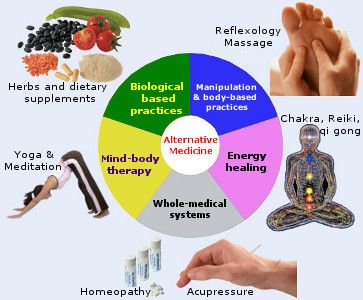Siblings play a crucial role in our lives. Growing up together, they are often our first friends and allies, shaping our emotional well-being and social skills. However, like any relationship, sibling dynamics can be complicated and challenging. It is essential to foster healthy relationships between siblings to ensure their overall development and well-being. In this article, we will explore the significance of sibling dynamics and provide valuable insights on fostering positive connections.
The Importance of Sibling Dynamics
Sibling relationships are unique as they combine both genetic and environmental factors. Siblings share a common background, similar values, and often diverse personalities. These relationships act as a training ground where children learn to relate, cooperate, and negotiate with others. The bond between siblings can promote emotional intelligence, empathy, and conflict resolution skills.
Moreover, siblings serve as lifelong companions, providing emotional support, and creating lasting memories. They can be a crucial anchor during challenging times, offering a sense of belonging and security. The relationship between siblings can significantly impact personal growth, self-esteem, and overall well-being.
Fostering Healthy Sibling Dynamics
Fostering healthy sibling dynamics requires effort and understanding from both parents and the siblings themselves. Here are some valuable tips to help cultivate positive relationships:
1. Encourage Communication and Listening Skills
Open and effective communication is the foundation of any healthy relationship. Encourage siblings to express their thoughts, concerns, and feelings openly. Teach them active listening skills, allowing each person to feel heard and understood. Effective communication fosters empathy, builds trust, and helps resolve conflicts peacefully.
2. Foster Individuality and Respect Differences
Each sibling is a unique individual with their own interests, strengths, and weaknesses. Encourage siblings to appreciate and respect each other’s differences. Celebrate their individual achievements and interests, helping them develop a sense of self-worth and respect for others.
3. Promote Cooperation and Collaboration
Engage siblings in activities that require collaboration and teamwork. Encourage them to work towards common goals, whether it be completing household chores or participating in hobbies and projects together. Promoting cooperation helps siblings build a sense of camaraderie and shared experiences.
4. Set Clear Boundaries
Establishing clear boundaries helps prevent conflicts and fosters respect between siblings. Teach them to recognize and respect personal space, belongings, and time. Encourage healthy conflict resolution strategies like compromising, sharing, and taking turns.
5. Provide Individual Quality Time
In addition to fostering sibling relationships as a group, it is essential to provide individual quality time with each child. This time allows for deeper connections to form and strengthens the bond between siblings.
6. Be a Positive Role Model
Parents play a crucial role in setting an example for their children. Model healthy behaviors, respectful communication, and conflict resolution skills within the family. Siblings are more likely to emulate positive behaviors when they witness them in their parents or guardians.
Conclusion
Siblings are a significant influence in our lives, shaping our social skills, emotional well-being, and overall growth. Fostering healthy sibling dynamics involves encouraging open communication, respecting differences, promoting cooperation, and setting clear boundaries. By providing individual quality time and being positive role models, parents can help foster strong and supportive relationships between siblings. Remember, investing in these relationships today can lay the foundation for lifelong connections and support.
HTML markup:
“`html
Sibling Dynamics: Fostering Healthy Relationships
Siblings play a crucial role in our lives. Growing up together, they are often our first friends and allies, shaping our emotional well-being and social skills. However, like any relationship, sibling dynamics can be complicated and challenging. It is essential to foster healthy relationships between siblings to ensure their overall development and well-being. In this article, we will explore the significance of sibling dynamics and provide valuable insights on fostering positive connections.
The Importance of Sibling Dynamics
Sibling relationships are unique as they combine both genetic and environmental factors. Siblings share a common background, similar values, and often diverse personalities. These relationships act as a training ground where children learn to relate, cooperate, and negotiate with others. The bond between siblings can promote emotional intelligence, empathy, and conflict resolution skills.
Moreover, siblings serve as lifelong companions, providing emotional support, and creating lasting memories. They can be a crucial anchor during challenging times, offering a sense of belonging and security. The relationship between siblings can significantly impact personal growth, self-esteem, and overall well-being.
Fostering Healthy Sibling Dynamics
Fostering healthy sibling dynamics requires effort and understanding from both parents and the siblings themselves. Here are some valuable tips to help cultivate positive relationships:
1. Encourage Communication and Listening Skills
Open and effective communication is the foundation of any healthy relationship. Encourage siblings to express their thoughts, concerns, and feelings openly. Teach them active listening skills, allowing each person to feel heard and understood. Effective communication fosters empathy, builds trust, and helps resolve conflicts peacefully.
2. Foster Individuality and Respect Differences
Each sibling is a unique individual with their own interests, strengths, and weaknesses. Encourage siblings to appreciate and respect each other’s differences. Celebrate their individual achievements and interests, helping them develop a sense of self-worth and respect for others.
3. Promote Cooperation and Collaboration
Engage siblings in activities that require collaboration and teamwork. Encourage them to work towards common goals, whether it be completing household chores or participating in hobbies and projects together. Promoting cooperation helps siblings build a sense of camaraderie and shared experiences.
4. Set Clear Boundaries
Establishing clear boundaries helps prevent conflicts and fosters respect between siblings. Teach them to recognize and respect personal space, belongings, and time. Encourage healthy conflict resolution strategies like compromising, sharing, and taking turns.
5. Provide Individual Quality Time
In addition to fostering sibling relationships as a group, it is essential to provide individual quality time with each child. This time allows for deeper connections to form and strengthens the bond between siblings.
6. Be a Positive Role Model
Parents play a crucial role in setting an example for their children. Model healthy behaviors, respectful communication, and conflict resolution skills within the family. Siblings are more likely to emulate positive behaviors when they witness them in their parents or guardians.
Conclusion
Siblings are a significant influence in our lives, shaping our social skills, emotional well-being, and overall growth. Fostering healthy sibling dynamics involves encouraging open communication, respecting differences, promoting cooperation, and setting clear boundaries. By providing individual quality time and being positive role models, parents can help foster strong and supportive relationships between siblings. Remember, investing in these relationships today can lay the foundation for lifelong connections and support.
“`




